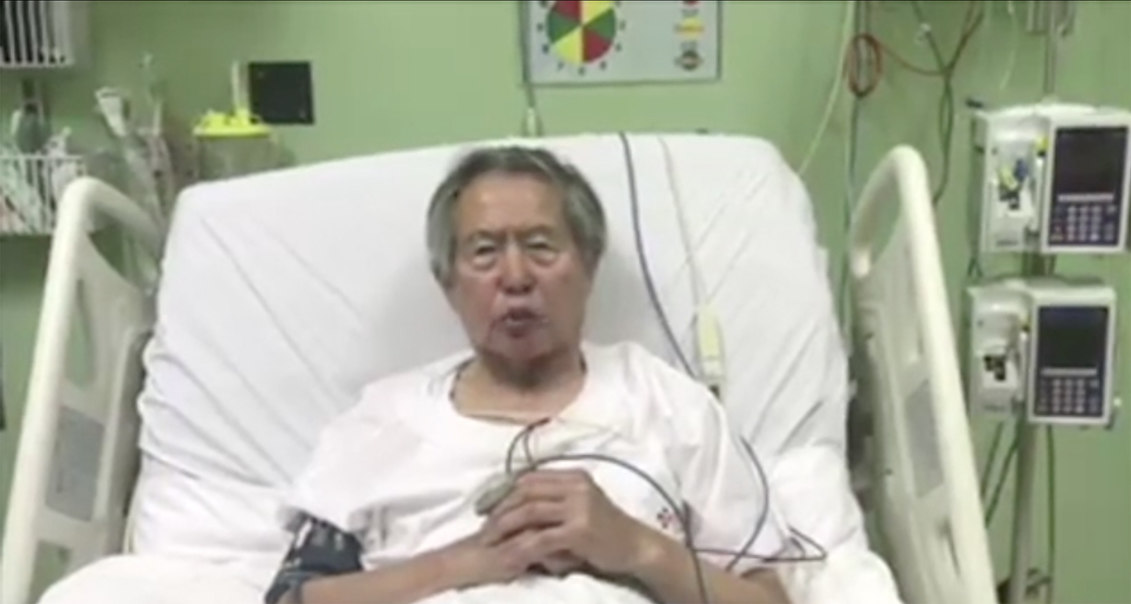
The offensive pardon to Alberto Fujimori
The current president of Peru, Pedro Pablo Kuczynski, granted the pardon and the right of grace for humanitarian reasons to former President Alberto Fujimori,…
Few seem to remember the terror caused by Alberto Fujimori during his regime, considered by the national press as a dictatorship under all description, between 1990 and 2000 in Peru.
The battle for the presidency between Fujimori and the writer Mario Vargas Llosa was a blow to the political structure of the South American country at the beginning of the 90s. With the support of some marginal sectors, small businessmen, evangelical churches and later of some leftist groups, Fujimori won 60% of the votes in the second round, after which he would forget all those who supported him.
With the help of his advisor, former captain Vladimiro Montesinos, Fujimori decided to reform the economy (thanks to the recommendations of the United States and the International Monetary Fund), dissolve the Congress, approve a new Constitution in 1993 and annihilate the revolutionary movements in the country as Sendero Luminoso and the Tupac Amaru Revolutionary Movement.
Beginning with the change of currency, an economic shock and the subsequent devaluation of wages, Fujimori managed to incorporate Peru into the international financial system, boosting the economy at the cost of a serious constitutional crisis triggered by the dissolution of Congress - who refused to grant broad powers to the president - and the use of armed violence, which would end in the so-called "self-coup" of 1992.
From then on, state repression and consecutive human rights violations were triggered, marking Peruvian history with events such as the Barrios Altos massacre, the murder of several students and a professor at the National University of Education Enrique Guzmán y Valle, and then the intervention of the media.
The publication of figures, data, and videos as evidence of the country's great corruption network, managed to unleash a social revolt that would lead to the surrender of power by Fujimori from abroad during his third term in office.
After attempting to take refuge in Japan and Chile, the former president was extradited and sentenced to 25 years in prison for an illegal raid, violation of human rights, usurpation of functions and abuse of authority. Several judicial processes also added the charges of fraudulent embezzlement, appropriation of funds and ideological falsehood in the tort of the state.
Despite Fujimori's macabre record, current president Pedro Pablo Kuczynski decided to grant him a pardon, cataloging his crimes against humanity as "errors," and freeing him from the rest of his sentence due to his delicate state of health, according to Infobae.
"I want to share my feelings with you. I want to tell you that this may have been the most difficult decision of my life, "Kuczynski said in a video to the public. "It's about the health and life chances of a former president of Peru who, having committed excesses and serious errors, was sentenced and has already served 12 years of conviction," he said.
"I am convinced that, those of us who feel democratic should not allow Alberto Fujimori to die in prison. Justice is not revenge," he added.
RELATED CONTENT
Despite having promised during his presidential campaign in 2016 not to release Fujimori, Kuczynski gave in to internal pressure exerted by the son of the former dictator, Kenji Fujimori, who along with his supporters voted against the dismissal of the current president by the Congress, with the clear intention of negotiating the pardon to his father, according to the newspaper El Tiempo.
But the Peruvian people won’t forget nor forgive, and thousands of people took to the streets once they heard the news, adding up to 6000 people in a massive march in the city of Lima, which culminated with at least one arrested by the police, according to the newspaper República.
Among tear gas, the authorities intercepted the concentration that sought to move to the Government Palace and even to the clinic where Fujimori remains hospitalized.
The sister of one of the victims of Barrios Altos, Gisela Ortiz, told the media from the demonstration that Kuczynski's decision did not imply a national reconciliation: "A reconciliation is based on justice, not impunity, and that justice is what Kuczynski stole from us yesterday," she added.
For Ortiz and many other antifujimoristas, the decision of the pardon would be based on unsubstantiated allegations, and that is why a group of victims has prepared a case to request the Inter-American Court of Human Rights to annul the pardon.
Meanwhile, and in the comfort of his recovered freedom, Alberto Fujimori asked for "forgiveness" from the bed of the clinic where he is hospitalized.
"I am aware that the results during my government on one side were well received, but I admit that I have also disappointed other compatriots. I ask them to forgive me from the bottom of my heart," the 79-year-old former president said in a video posted on his Facebook account.










LEAVE A COMMENT: